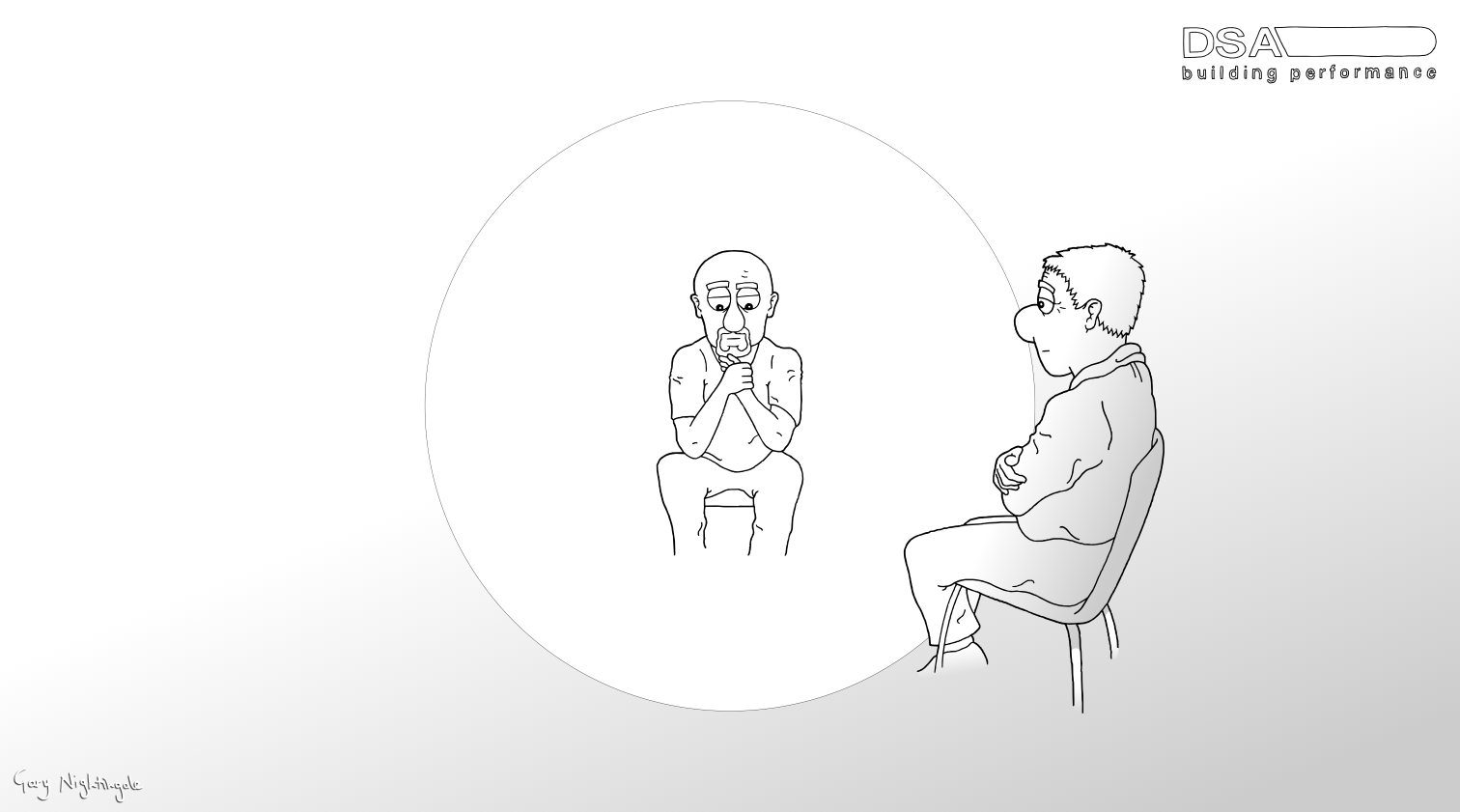Recognising it’s tough out there and that confidence is down, I’ve been running weekly sessions on Zoom about how to protect your confidence in tricky times. So how do you be really confident?
I believe confidence is the lifeblood of one’s business and, when it’s down, not much gets done. This applies to me at a micro level and to the world at the macro level. Remember when the banks went bust in 2008, then Brexit, and now Covid 19? They all hit confidence and things ground to a halt.
At the end of my one-hour Zoom session, I ask participants: “If you were really confident as a [enter your job or role here], what would you do?”. Participants identify their job or role – parent, engineer, director, etc. – and then list what they would do if they were really, really confident in it. They take away the list and use it to build their confidence muscle and amaze themselves and others in the process.
I turned this on myself thinking about how to be really confident, and this is what I came up with:
If I was really confident as a coach I would:
- Do much less. I over prepare and my coaching becomes more about my preparation and not the person I am working with. Coaching is about their goals and the challenges they are working through. It’s not about my preparation nor my stuff. Also, “Do much less” is about me talking or intervening less and noticing, sensing and listening more.
- Hold the silence longer. When the person I am coaching, the thinker, goes silent they are usually thinking. My job is to hold that silence, giving them space to think. The temptation is to fill the silence with a follow up question. Holding the silence longer gives the thinker valuable space to think; they rarely get it anywhere else.
- Ditch note taking. When I am taking notes while coaching I am not present, in the moment, with the thinker. I am concentrating on taking notes. This one’s easy. Just stop it. It’s a bad habit for a coach.
- Ask one word questions. Sometimes I ask long convoluted questions, with multiple layers. In doing so I am articulating my thinking. Coaching is not about my thinking it’s about the thinker’s thinking. Mostly, I simply need to ask “So?” or “And?” or “And today?”, to invite the thinker to think.
- Turn up and coach what’s there. When working with teams I used to design the session with times for each part. And if an issue cropped up that needed exploring, I would step over it in case we ran over time. Now, I’m moving towards turning up with a blank piece of paper and coaching what is there, asking “What do we need to think about today?” It’s the difference between facilitating a process and coaching.
- Stop wrestling with myself inside the coaching. My coaching supervisor said “Dave, you’re a wrestler”. In my head I’m constantly challenging myself, unpacking the issue and my approach to it, dialling down my self doubts and trying to choose the “right” words or question to ask. All of this means I am not present with the thinker, but rather lost in my head. Over the years I have come to value my intensity and introspection as qualities that enable me to think deeply and work things out, though not while I am coaching. Again, stop it.
- Trust the thinker. Be with the person I am working with, knowing they are self resourced enough to work things out for themselves. My suggestions might work in my world though probably won’t in theirs and the act of suggesting – or worse, telling – just distracts their thinking. Trust the thinker, they have their own solution, they just need time and space and permission to think it through. And maybe a “go on then” bit of encouragement to try it out.
- Strip everything back to the basics. I overcomplicate things. Coaching is a partnership to explore new thinking. As a coach my job is to establish and sustain a safe container in which the thinker can think and, having done that, accompany them on their thinking journey, slightly behind them as they are leading, and ever-so-slightly smaller than them in terms of power and authority. Too often coaches are on a pedestal, seen as super-wise beings. Message to self, stick to the basics: container and partner in the conversation.
- Teach coaching. Having been a leadership team coach for twenty years I think its about time I started teaching coaching; giving back and building skills. And so have created a course called Coach for Results. Consistent with doing less, trusting the participants and stripping everything back to the basics, the course covers just the essentials. Just enough to quickly build competency and confidence to get started with a coaching style. It’s for young professionals in the construction industry and seasoned managers who want to re-chip their management style.
After doing this exercise I stuck the list on my wall to remind me, and am much more confident and competent as a result. I’m surprising myself and really enjoying my coaching.
And the new course is being delivered on the CIOB Academy here, starting 15th June 2021
Leadership Team Coach Dave Stitt has been working with construction industry executives and project teams for 20+ years, enabling them to deliver remarkable results in a remarkable way.
Read more blogs from Dave – Going round in circles: Coaching and the co-created pattern

